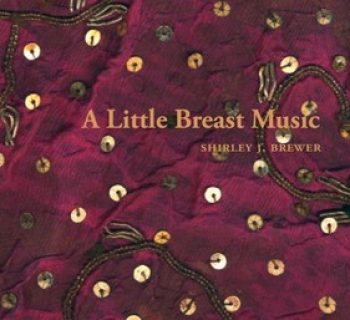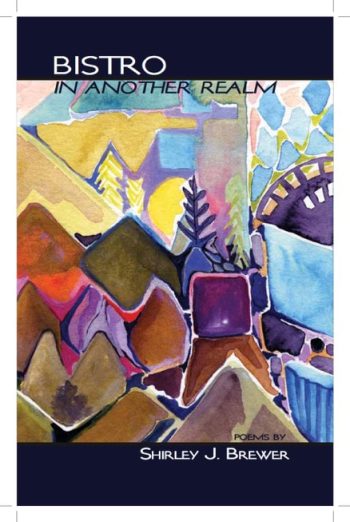I Am Shimmering Goddess Energy
Order Books
What People Are Saying...
Wild Girls
Shirley Brewer is a master poet, and Wild Girls is a sheer delight to read.
Often unheard of in a world dominated by powerful men, the protagonists of Brewer’s poems are succinctly captured and typified in the poem, “Where Did the Wild Girl Go,” a poem in memory of one Elaine B. McCarthy.
It’s the women in Brewer’s own life who really stand out, the world she paints like a mash-up of I Love Lucy and The Golden Girls in the lovable way she portrays them almost as the cast of a sitcom. Besides her mother, Grandma Alice and Aunt Emma, there’s Aunt Alvina, the pharmacist, who appears in at least three of the poems.
Wild Girls
Sometimes all that glitters is real. You’ll find this is true when you read Wild Girls—a book that is golden. Brewer’s sartorial poems dazzle with language, personalizing poems with humor and pathos. The seduction and glamour of clothing often carries the poet’s themes – funny and sad, sweet and soulful— but the extraordinary realization is that sensuality can define our humanity. Each poem wears an unruined heart, the brightest apparel of all.
Wild Girls
The poems in Wild Girls “shoot ashes off the tip of a cigarette.” Poet Shirley J. Brewer deftly pins both the well-known and unsung heroines in these pages to the skies of her imagination. From Annie Oakley to Queen Elizabeth II to Jackie Kennedy to Breonna Taylor, she captivates our senses with a fragrant and richly-hued assemblage rife with pain, joy, humor and grace. Brewer conjures a thrilling magic in this important collection, triumphantly evoking flashes of both Plath and Duhamel.
Bistro in Another Realm
Bistro in Another Realm is one of the most genuine books of lyric poetry that you will ever read. Nevertheless, you can’t tell the real from the unreal in Shirley J. Brewer’s narrative and highly romantic poems. There’s a touch of surrealism in her work, “a spoon that circles/ like a shark in a cup,” the silk dress “brushing the long gown of evening.” Excellencies include her sense of humor, the rhythm of her lines, the clinching authority of her concluding stanzas, the apposite nature of her metaphors. You can believe the authentic emotion in her confessional verse, in her masterly ekphrastic poems about art and artists, in her elegies for family and small town America. I have enjoyed her previous work but this book is the best and surest introduction to her remarkable gifts.
Bistro in Another Realm
Shirley J. Brewer’s poems move me in ways no other poems quite manage. When she writes about artists, film stars, family or friends, her imagination is so alive I feel them sitting in my living room with me, except it is I who have traveled into her delicious and dazzling realm. Who would have thought that a poetry book could be a page-turner, but Bistro in Another Realm really is. I will go back to it again and again.
After Words
In After Words, Shirley J. Brewer has written with great empathy a gorgeous elegy to Stephen Pitcairn, his family and to the citizens of Baltimore. The collection of poems in many voices, most written in compressed couplets, documents Pitcairn’s murder with a lyric intensity that only poetry can achieve. Brewer is working here in the company of other poetic witnesses: Muriel Rukeyser’s Book of the Dead, Carolyn Forche’s poems on El Salvador, C. D. Wright’s recent One with Others. And, yes, there are other voices as there are other atrocities. And we, In quiet, simple moments, encounter Brewer’s large-hearted offering, which enables us to participate with our own small gesture of healing.
After Words
Shirley J. Brewer’s stunning poems give voice to an urban Baltimore community struck by crime, to the young victim following his death, to his grieving mother, and to the neighbor – Reggie Higgins – who held and comforted Stephen in his last minutes of life. They reflect, in beautifully crafted lines, the horror of violence, the depth and duration of grieving, the incredible kindness of a stranger and, most of all, the tenderness, anger, love and wit of the young victim in messages sent after his death. Brewer brings us to the edge of an abyss and holds our collective hand.
A Little Breast Music
Shirley J. Brewer shows that the elegiac and comedic can be companions, and in fact can help register the variety of feelings associated with loss. She’s an artful blender of tones, and her language is imaginative and often full of a spunky verve, as in this conclusion to “How to Kill Time”:
Gouge the eye of midnight,
mangle those miserable hands
that murdered summer.
How dare they govern the way we lose
light, the lovely length of evening.
A Little Breast Music
Shirley J. Brewer’s poems are so alert to the reverberant specifics of life, so alive with sensory energy, that I lose myself (a benefit!) in the lost worlds they evoke.
A Little Breast Music sings!



